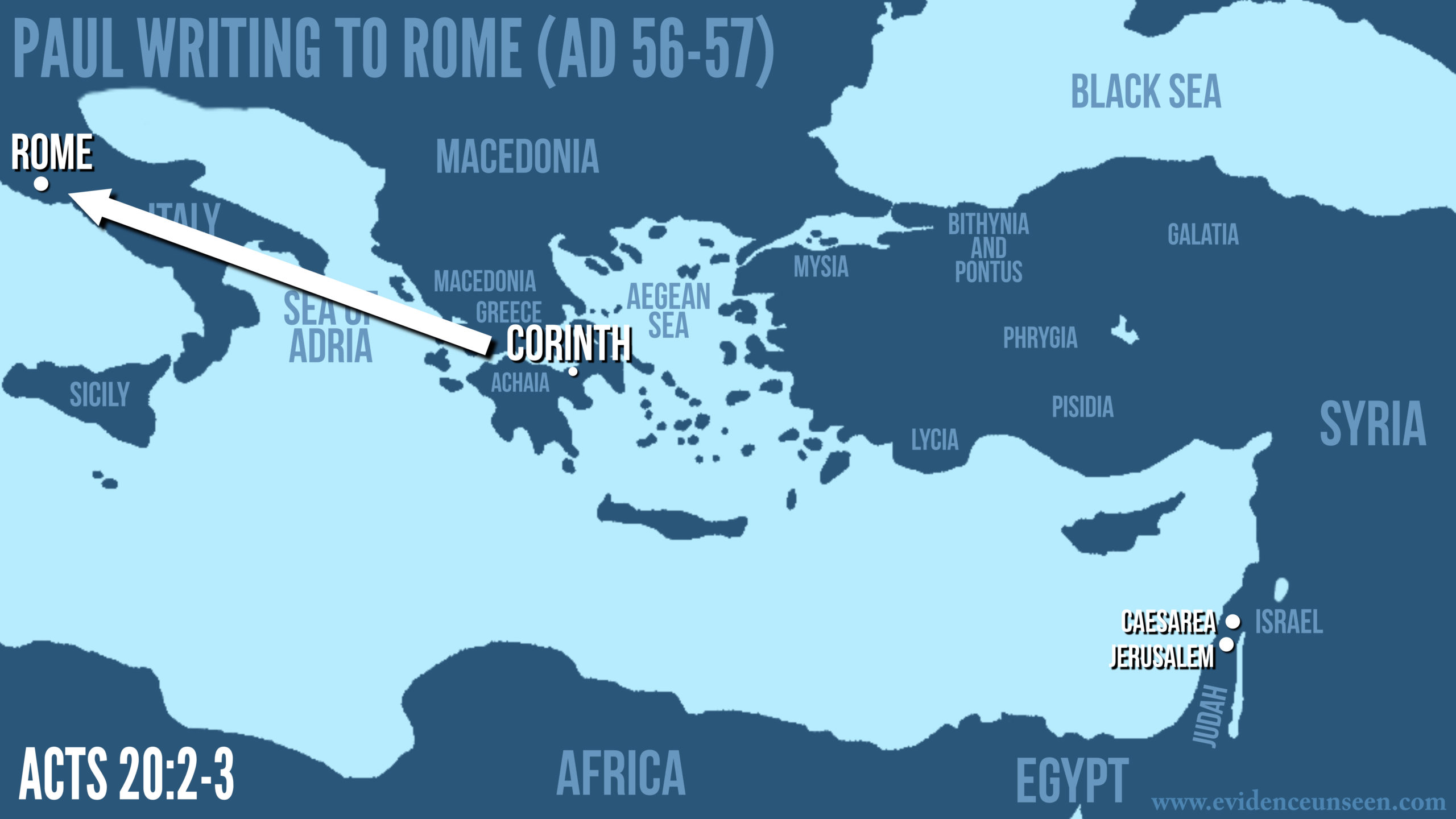D.A. Carson and Douglas J. Moo, An Introduction to the New Testament (2nd ed. Grand Rapids, MI: Zondervan, 2005), p.393.

There is little doubt—even among critical scholars—that Paul wrote Romans. D.A. Carson and Douglas Moo write, “There is little debate about whether Paul wrote Romans.” Thomas Schreiner concurs, “No serious scholar today doubts that Paul wrote Romans.”
Paul used a scribe to write the letter for him. At the end of the book of Romans, the scribe takes control of the pen and writes, “I, Tertius, who write this letter, greet you in the Lord” (Rom. 16:22). This might be why Romans almost sounds like a live teaching. Paul preached this letter out loud, and Tertius wrote his words, as he spoke them.
When we compare Paul’s missionary plans in Romans 15 with the book of Acts, we discover that Paul wrote the book of Romans at the end of his third missionary journey. Paul wrote the letter before he made his trip to Jerusalem (Rom. 15:24-32; Acts 21). It seems most likely that Paul wrote Romans while in Corinth, Greece:
Paul mentions Phoebe (Rom. 16:1-2) who was from Cenchrea (one of the port-cities of Corinth).
In Romans 16:23, Paul mentions writing in the house of Gaius. In 1 Corinthians 1:14, Paul mentions baptizing “Gaius” in Corinth.
Paul writes, “Erastus, the city treasurer greets you” (Rom. 16:23). In 1929, a piece of pavement from the first century uncovered the inscription: “Erastus, Procurator and Aedile, laid this pavement at his own expense.” At the end of his life, Paul again mentions that Erastus “stayed in Corinth” (2 Tim. 4:20).
When we flip over to the book of Acts, we see that Paul stayed in Corinth for “three months” at the end of his third missionary journey (Acts 20:3). Blomberg, Bruce, Moo, and Mounce date the letter to the winter of AD 56-57, while Paul was on a three-month sabbatical in Corinth, Greece. Making a more conservative estimate, Schreiner states that we can “safely locate the letter between AD 55 and 58.”

D.A. Carson and Douglas J. Moo, An Introduction to the New Testament (2nd ed. Grand Rapids, MI: Zondervan, 2005), p.393.
Thomas R. Schreiner, Romans: Baker Exegetical Commentary on the New Testament (Grand Rapids, MI: Baker Books, 2000), 2.
Craig Blomberg, From Pentecost to Patmos: An Introduction to Acts through Revelation (Nashville, TN: B & H Academic, 2006), 234.
F. F. Bruce, Romans: An Introduction and Commentary, vol. 6, Tyndale New Testament Commentaries (Downers Grove, IL: InterVarsity Press, 1985), 19-20.
Of course, Moos states that “leeway of a year or two either way must be allowed.” Douglas J. Moo, The Epistle to the Romans, The New International Commentary on the New Testament (Grand Rapids, MI: Wm. B. Eerdmans Publishing Co., 1996), 3.
Robert H. Mounce, Romans, vol. 27, The New American Commentary (Nashville: Broadman & Holman Publishers, 1995), 26.
Thomas R. Schreiner, Romans: Baker Exegetical Commentary on the New Testament (Grand Rapids, MI: Baker Books, 2000), 3.

James is an elder at Dwell Community Church, where he teaches classes in theology, apologetics, and weekly Bible studies.